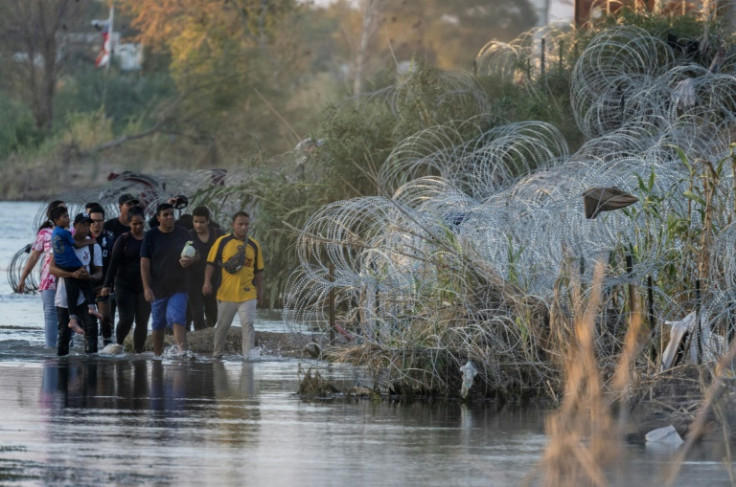
Texas authorities are fighting to keep control of Fronton Island, a body of land surrounded by the Rio Grande that they said was openly used by cartels until last year.
According to NewsNation, the Greg Abbott administration carried out an operation called Flat Top in September of last year to take the land back. Before, cartel operatives could be seen in body armor and even assisting with human smuggling activities. They were also throwing explosive as a way to intimidate others.
Texas' Department of Public Safety was given back access to the area after determining it was owned by the state. Local authorities then leveled the territory and built infrastructure (like land bridges and concertina fence) to prevent cartels from returning. They said the initiative was successful, with a 100% decrease in activity, according to the Texas General Land Office.
However, the International Water Boundary Commission recently banned construction in the area, saying it was impacting the river by blocking part of the flow that would normally occur during normal and designed flood events.
"This could be especially detrimental during these events, as it could cause unforeseen flooding in Mexico and its surroundings," the IWBC said.
Texas officials, on their end, dismissed the concerns. Texas Land Commissioner Dawn Buckingham said that if the federal government moves forward with an attempt to claim the land as federal, there will be a "fight."
"If they did take that property I would invite them to actually secure the border," Buckingham said.
The clash is just the latest of several between the Abbott and Biden administrations over immigration enforcement. State authorities have taken measures the federal government claims it has sole right to, such as intercepting and deporting migrants.
The most notorious measure is SB4, a controversial bill that creates a Class B misdemeanor for illegal entry that can be punished with up to 180 days in county jail and/or fine up to $2,000. A repeated offense is elevated to a state jail felony. That law is currently on hold while local authorities spar with the federal government in the courts over its enforceability.
© 2024 Latin Times. All rights reserved. Do not reproduce without permission.







